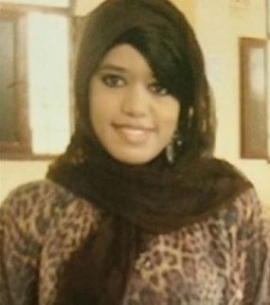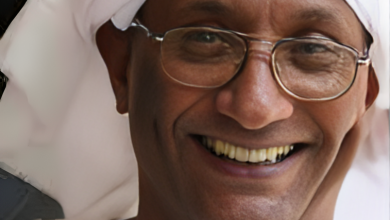Jeddah Platform… Endeavors Khartoum Will Achieve, Facts Riyadh Will Realize

By: Dr. Amina Al-Arimi
Until writing these lines, Saudi diplomacy has been called in some African capitals “political balance diplomacy,” and this is common in some West African countries, and this goes back to the era of the former intelligence chief, Prince Turki Al-Faisal, who succeeded “according to an African point of view” in sparing the Kingdom a lot of the political tensions surrounding Riyadh’s role as a representative of “Sunni Islam” in a continent that considers “Sufism” a fundamental pillar of its religious base, and this is what explains Riyadh’s transgression after that era, entering into the depths of the political tunnel that some parties tried to forcefully enter into, and it is enough for the reader to return to the events in the Nigerian city of Zaria in 2016 to learn about the foundations and rules of that political crosscurrent that was prepared with great care to abort “political balance diplomacy.” This, in my opinion, is what drives Riyadh today to the necessity of preserving this legacy in the African conscience, which today faces a difficult test in Sudan that will determine its future destination is the entire African continent.
“Riyadh” is almost one of the Gulf capitals, if not the Arab capital, “closest” in understanding and absorbing the Sudanese security and intelligence structure from 1989 until today. It is enough to know that the former director of the Sudanese External Security Service, “Osman Al-Sayyid,” is one of the most important and experienced Sudanese security cadres and the most important scientific minds that Saudi intelligence used in the 1980s, so it is very difficult for Riyadh to be ignorant of “security” and “intelligence” dealings with “Khartoum”, but what hinders the success of the “Jeddah Platform”? Before answering this question and proposing solutions to make that platform a success, it is necessary to discuss the internal and external circumstances surrounding that platform and learn about the position and vision of the active parties in it with complete transparency and objectivity.
First, there are three facts that Riyadh is aware of regarding the current situation in Sudan, even if it has not declared them explicitly:
The first fact: As the Sudanese-Sudanese conflict approached its first year and both sides of the conflict insisted on continuing the fighting, Riyadh realized that the “Jeddah Platform” sponsored by the United States was not established to solve the Sudanese crisis, but rather to prolong it, and to perpetuate the conflict between the Sudanese military component, the “National Army” and the Rapid Support Militia (RSF). “In the square of no return, in preparation for the birth of what some African elites call “Le Sudan n’est pas comme son people,” which means in English “Sudan that does not resemble its people.” Washington’s choice of the Kingdom to lead the negotiations between the parties of the conflicting Sudanese component is due to Washington’s conviction that Riyadh stands on the same line from both parties, even if they expressed “support” for the Sudanese Armed Forces as a legitimate representative of the Sudanese national state at times, and “neutrality” regarding the efforts of the Sudanese military establishment to exclude the RSF militias from the Sudanese political scene at other times, and Riyadh’s neutrality regarding the exclusion of RSF militias from the Sudanese political scene is due to the Kingdom’s conviction that the process of exclusion, although not impossible, is that the circumstances surrounding the Sudanese State today and the growing military supply operations for the RSF militias make exclusion difficult, even if these militias were integrated into the ranks of the Sudanese national military establishment, they will remain “non-national” militias and thus it is capable of defecting from the army, rearranging its ranks, and imposing a new reality whenever it is able to do so. Add to that, the role that these militias played in supporting the Arab coalition forces in Yemen, which Riyadh and its allies cannot ignore, let alone the view of the European Union countries in the role played by the Janjaweed in the international migration dossier.
The second fact: Cairo’s reservation about dealing directly with the RSF militias does not mean that Cairo is not aware of the power of the RSF on the ground. Rather, it is fully aware of it and fears it, especially in light of the regional and international division over the Sudanese-Sudanese armed conflict. Egypt’s vision for Sudan and the entire South Nile Valley region is not… Like the vision of “Riyadh” and the rest of the Gulf states for the Sudanese state. Cairo’s project in Sudan is a project that goes beyond politics and national security. It is a “replacement” project that did not begin with drowning the world’s greatest civilizations in “Old Halfa” in the 1960s, and it will not end with tearing “Halayeb” from its Sudanese roots in the era of the nineties, but it extends beyond that, and therefore Cairo’s efforts to involve it in the ongoing negotiations that will take place regarding the Sudanese dossier, Cairo considers as an “obligation” that it will not allow to be bypassed in what is going on around it, and therefore “Riyadh” and the Arab Gulf states face political contradictions and intersections, even if it was aware of it, but it was not prepared “alone” to bear its consequences.
The third fact: The Sudanese leadership’s resort to rapprochement with Tehran is surrounded by two possibilities. Either the Sudanese military establishment has reached a state of distrust in the role of the Jeddah platform in ending this war, or Khartoum has reached the same conviction that some African parties have reached regarding the ambiguity of Riyadh’s position on the Sudanese-Sudanese conflict, and whether one of the two possibilities is true or both, Khartoum has become aware that the recent Sudanese-Iranian rapprochement is what brought Saudi calculations back to crystallization not only in Sudan but even in the Horn of Africa in light of the Somali-Ethiopian crisis and the “latter’s” efforts to gain a foothold on the Somali coast and the growing conflict in the Red Sea and Bab Al-Mandab, and therefore Khartoum considers the need for “Riyadh” and all Gulf capitals to understand Khartoum’s position on resorting to Tehran, as the Sudanese military institution faces the greatest challenge in its contemporary history and there is no room here to think about the reaction of countries loyal or hostile to Tehran regarding the supply. The Iranian military force, which Khartoum aspires to obtain, and the Sudanese national institutions do not have the ample time to make estimates of each country’s position on this war, which targets the existence of the Sudanese state with its resources and wealth and the future of its people. Therefore, there is no blame on Khartoum for resorting to Tehran or to any party to limit its losses in face of RSF militias.
“Gulf” proposals to make the Jeddah platform a success
The Arab Gulf states share the trend that says that “Washington” does not need to know and understand the dimensions and political and security repercussions of the growing Iranian presence on the Red Sea and Bab Al-Mandab “in the event that it escalates.” It is the party most capable of recognizing the future of those repercussions and working to deal with them or abort them, and thus the Gulf question remains: “Are there behind the weak seriousness of the American diplomatic movement to stop the Sudanese war “serious” American efforts to change the rules of the international game in the Red Sea and Bab Al-Mandab region, and put forward a scenario of mixing the cards to push Khartoum to seek refuge in Tehran and thus give the latter an opportunity to strengthen its presence in that region, which means supporting keeping the possibility of a military confrontation between Iran and the Gulf states alive as a “pressure card” if the stages of Chinese-Gulf rapprochement progress at Washington’s expense?
The difference in political visions between the Gulf parties regarding what is happening in Sudan is one of the reasons that encouraged the American administration, which is “diplomatically slow in the Sudanese dossier,” to weaken political engagement with that dosseir. To make the Jeddah platform a success this time, I see that the Gulf Cooperation Council countries should work on the following:
Finding points of convergence that support the path of unifying Gulf visions in resolving the Sudanese dossier and reaching joint cooperation points to stop this war and contain the Sudanese crisis. This is a point on which there must be agreement and coordination with the Sudanese military establishment, as it is the legitimate representative of the Sudanese state, and the active international party in the Sudanese arena, “the United States.”If the Jeddah Platform is unable to resolve the Sudanese crisis this time, the Gulf states will bear part of the responsibility for the upcoming security and political developments in the Red Sea and Bab Al-Mandab region, which will extend to the Horn of Africa and will undoubtedly create new geopolitical situations that were not taken into account.
Involving Omani diplomacy “mainly” in the Jeddah platform, due to Muscat’s negotiating experience in many political and security dossiers, which gained international and regional acceptance, and its “declared” neutral stance on the Sudanese crisis, not to mention the Sudanese popular acceptance of the Sultanate’s role, which is described as a role with a “clear direction.” On the African continent, or as it is called in Africa, the “smooth role”, in addition to that, there is news confirming that the Sultanate of Oman is hosting the most important former Sudanese political and security cadres, who could have a role in resolving the Sudanese crisis, even if it is a matter of advice, not guidance.
Endeavors that Khartoum will achieve.
Given the continuing flow of military supply shipments to the RSF militias and the inability to stop them, it is suggested that the Sudanese leadership work on the following:
Contracting defense cooperation with the New Sahel Alliance “Liptago Gourma” to abort the large RSF militia project “the extended Arab state” starting from Sudan, passing through Chad “after the overthrow of the Zaghawa” and reaching Niger and Mali, and with this memorandum of military cooperation, the interests of the New Sahel Alliance with Khartoum will converge, after realizing the new African political leaders, “Goeta, Traoré, and Tiani,” said that the threat of a cross-border militia project would emerge soon in response to the state of self-reliance of the triangle of national WILL imposed by “Ouagadougou, Niamey, and Bamako,” which is taking shape in the Sahel. If we assume for the sake of argument that there is an international effort that the leader of the militia, “Hemedti,” will take over rule in Sudan. This will, without a doubt, be an attempt to undermine the New Sahel Alliance, and the threat of the project of the so-called “extended Arab state” will be present and will be used whenever the international interest requires it in light of the political developments taking place in the African Sahel region, and this is what Khartoum must discuss it clearly with the African Sahel countries and prepare to confront it, in order to curb militia activity seeking to create followers in West Africa and to preserve national unity in the Sahel.
Holding a “diplomatic” meeting with the President of the Central African Republic, Faustin Todera, to learn about the features of his new strategy that seeks to limit Moscow’s influence in his country by weakening Wagner’s forces after Bangui recently concluded a special military agreement with the largest Western security company, Bancroft. The Sudanese delegation will work to try to find common points with Bangui that Khartoum seeks to cut off any support path for the RSF Militia. If we assume that Khartoum faced reservations or rejection from Bangui regarding Todera’s involvement in some deals for the benefit of the militia, then that dossier can be transferred to the Sudanese Security and Intelligence Service, which with his extensive intelligence network, can be able to attract senior security leaders in Bangui and outside it, which do not “implicitly” agree with Todera’s orientations in supporting the militia, and are experiencing a state of moral turmoil similar to that experienced by senior security leaders in Chad due to their regime’s involvement in suspicious deals for the benefit of the militia. Thus, Khartoum can, with minimal effort, win over those leaders seeking to end the cross-border Janjaweed project. The military establishment in Central Africa, for those who do not know it, includes in its ranks a group of senior security and intelligence leaders who owe loyalty to the Sudanese state for Khartoum’s “diplomatic” role in sponsoring peace negotiations in Bangui 2019 (there are security cadres who have left the military establishment and are based in Khartoum and eastern Sudan who can be used), not to mention Sudan’s “historical” role in developing the mechanisms of the educational process in academic institutions and attracting university students from all regions of Central Africa to Sudanese universities, who today are leading a project called “Institutional Development in Sovereign Ministries” and they are the ones entrusted with many dossiers, the most important of which is the African-African relations dossier.
Forming a special committee to develop the efforts of the Sudanese leadership to exclude the RSF militias from the political scene. There is no doubt that the project to eliminate the militia is a national project in which popular visions and efforts will come together before Sudanese institutional efforts to get rid of the greatest threat to Sudanese national security. To make this exclusion process successful, a plan can be developed with “gradual” chapters. Getting rid of the RSF is easier than getting rid of the remnants of the Ingaz Army and the National Congress and its supporters who are infiltrated in the joints of the Sudanese state. The collapse of the RSF Militia will be rapid because it lacks the doctrine and emotional foundation from which some militias are based. The RSF cadres cannot be compared to the cadres of the Sudanese People’s Security Service, for example. What strengthens the RSF is the terrifying chaos that Sudan is experiencing, especially its western part.
Sending Sudanese delegations to all security institutions in the West African region, especially “Mali, Niger, and Burkina Faso” to explain the danger of the RSF Militia projects (dividing national states and inciting ethnic tendencies to form affiliated militias in West Africa, controlling vital resources and the various mining mines that the continent is full of to prevent the wheel of economic and development and maintain the strategy of impoverishing people for the benefit of regional and international parties), and to reveal the truth about the militia projects that it seeks to pass to the West African countries, starting from Sudan, passing through Chad, then the rest of the African Sahel countries, and this will help, in my opinion, to create a public opinion in those countries that is in harmony with the state of political awareness experienced by the peoples of that region, which rejects all projects that obstruct the sovereignty of the national unity of all African countries.
Rwandan President Paul Kagame is aware of the danger of the cross-border political project led by the Janjaweed leader Hemedti, which aims to undermine the concept of the national state in Africa. Therefore, this must be discussed with Kagame. If this project is not confronted “security-wise,” it will destroy the security strategy. The regional initiative led by Kigali in Africa, which Kagame is betting on, is the first gateway to the success of the “African solutions to African crises” strategy, and thus all national ambitions led by “Kagame” over the past two decades, which were capable of transforming Rwanda into what is called today “the Singapore of Africa,” will gradually be eliminated. “.
Working to find a link with “Mohamed Omar,” who is known as “Baba Ladi,” the former Director General of Chadian Intelligence and one of the most prominent security cadres dissidents from the Chadian regime and the owner of the “Great Fulani State” project. (There are conflicting reports between his imprisonment and his release), “Ladi” can contribute. “The militia operations in Darfur greatly undermine his previous security experience in Darfur since 2006. On the other hand, Ladi will work to ensure the success of future Sudanese endeavors in Central Africa, especially after the recent tension in Chadian-Sudanese relations through his supporters, some of whom have joined the security institutions in Bangui and the success of others in rearranging their followers into armed security organizational structures in preparation for seizing power or participating in it, whether in “N’Djamena” or “Bangui.”



